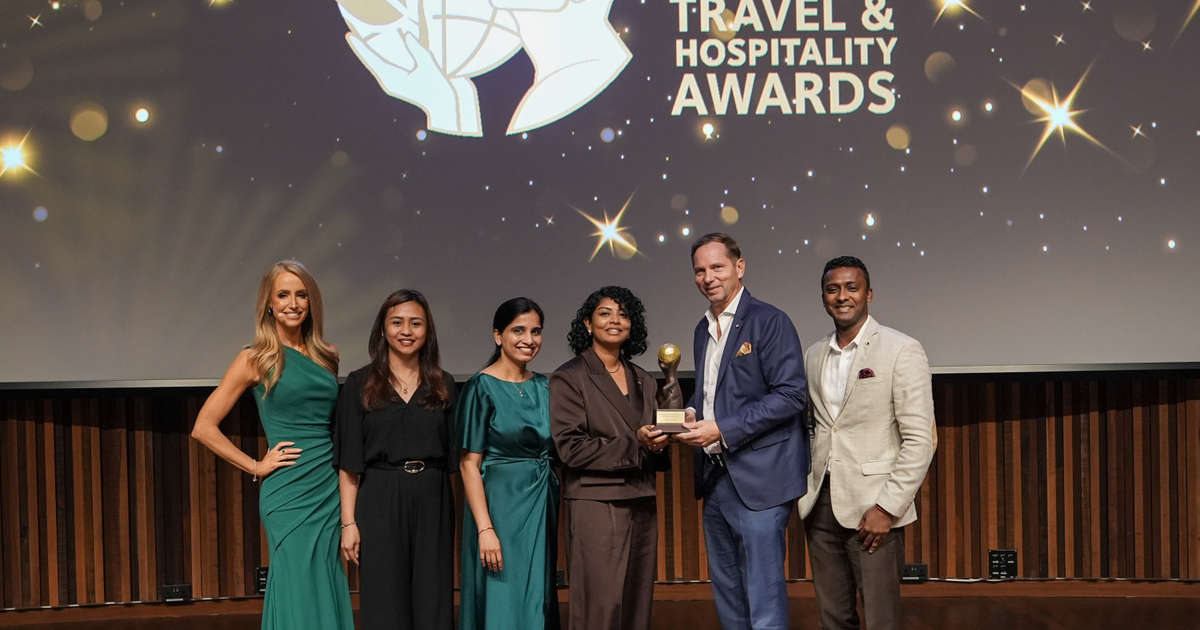
The Myth of the Eternal Welcome
I hate to generalize about generations (yup, pun intended!), yet it is difficult to ignore that a crack has opened within the old catechism of hospitality, that choreography of handshakes and ritualized greetings passed from Jedi to padawan as if it carried the weight of eternal midichlorian truth (sorry, I spent the weekend in Disneyland Paris with my son, so my cultural references are slightly skewed), but which today feels less like continuity than the fading echo of a ritual whose spell has been (partially) broken.
The fracture cannot be reduced to a simple decline in service quality, even if the evidence is persuasive, with the American Customer Satisfaction Index showing consistent deterioration since 2018 and J.D. Power confirming pretty much the same downward curve. What has shifted is the very ontology of service. For a new generation of travelers, particularly Gen Z and the nascent Gen Alpha, the elaborate choreography once marketed as luxury is no longer perceived as a gift to be accepted with gratitude, but almost as an intrusion that disrupts the seamless flow of their experience.
The timeless adage that the guest must be treated like a king assumes a universal appetite for deference, yet many today long not for coronation but for disappearance, as if the highest form of hospitality in the twenty-first century were somehow humanless.
Many today long not for coronation but for disappearance, as if the highest form of hospitality in the twenty-first century were somehow humanless.
If we are to take hospitality seriously, we must first unmake the romantic shorthand we have inherited. The very word, /ˌhɒspɪˈtalɪti/, is already a paradox, a dense etymological knot in which “welcome” and “threat”, “guest” and “enemy”, coexist in the same Latin root, which is why “hospital,” “hospitality,” and “hostility” still echo one another like estranged siblings forced to share the same phonetic bloodline… “Now you know. And knowing is half the battle,” as G.I. Joe would put (again, very sorry…).
The point is not to discard human-centric hospitality tout-court, but to stop mistaking it for a universal blueprint. Hospitality is not a single archetype to be preserved in amber, but a spectrum of modes, some ceremonial, others deliberately absent of ceremony, and to cling to the myth of the perpetual royal guest is to ignore the growing number who do not want the crown at all.
Hospitality is not a single archetype to be preserved in amber, but a spectrum of modes, some ceremonial, others deliberately absent of ceremony, and to cling to the myth of the perpetual royal guest is to ignore the growing number who do not want the crown at all.
As I said at the beginning of this piece, I usually resist the (lazy) temptation to flatten entire generations into neat monoliths (sure, most of the music I blast still comes from the eighties and nineties, but I am fully aware there are plenty of brilliant bands alive and kicking right now; in fact my most listened to artist so far in 2025 is TORTURETWINN, and if you have not yet, you really should check him out), yet in this case the shift is simply too structural to be dismissed as a matter of taste or temperament.
What we are witnessing is neither ordinary shyness nor some whimsical generational tic; it is systemic, and it spills far beyond Gen Z or Alpha, touching other cohorts as well (myself included, proudly carrying the Xennial badge). After years of asynchronous messaging, tap-and-go microtransactions, and lives increasingly mediated by algorithms, the circuitry of social interaction has been rewired to the point that direct conversation has ceased to be the default and has instead become an option, and often the least desirable one. Want empirical evidence? If you have a teenage son, try asking him to order a pizza over the phone, and you will see this paradigm in action…
If you have a teenage son, try asking him to order a pizza over the phone, and you will see this paradigm in action…
The Structural Shift in Social Interaction
The idea for this piece originated from a recent conversation with Steven Kenney, Founder and Principal at Foresight Vector, during which we reflected on the implications of artificial intelligence for employment within the context of a university research project. That exchange carried me back almost a decade, to an article I wrote entitled “The Hotels of the Future: Anthropocentric, Technocentric, and Hybrid”, where I argued that the architecture of hospitality was destined to diverge into distinct species, and that the conventional hierarchies of stars, brand prestige, and reputation would eventually give way to a more revealing metric: the proportion of biological staff a property elected to employ.
At one extreme, I envisioned the technocentric hotel, a model designed to insulate the guest from the unpredictability of human interaction through a seamless orchestration of automated processes. At the other end stood an anthropocentric model that rejected automation not from fear or nostalgia but from conviction, elevating human fallibility into a form of luxury, an emotional texture no algorithm, however sophisticated, could convincingly simulate (something I re-explored recently on my paper “Humans-as-Luxury: The Future of Hospitality in an AI-Driven Age”.
Between these poles emerged the hybrid, where machines absorbed the repetitive and the banal, leaving human presence to illuminate moments of authentic connection. And you know what? What once sounded “highly speculative” (if not complete BS) is already materializing in the way we filter and select experiences. “Zero staff contact” will stand alongside “late checkout” and “sea view,” just as today you can choose, directly on the app, whether or not you want to talk to your Uber driver before the car even arrives.

 — Source: Hospitality Net
— Source: Hospitality Net
For a growing segment of travelers, the ability to avoid human interaction will be not a reluctant compromise but a sought-after feature. At the same time, for those who desire radical intimacy, the simple assurance that “a human, not an LLM, replied to my email” will become a new form of premium, a signal of rarity in a landscape increasingly mediated by machines.
“Zero staff contact” will stand alongside “late checkout” and “sea view,” just as today you can choose, directly on the app, whether or not you want to talk to your Uber driver before the car even arrives.
Conclusion
In our exchange, Steven noted how my reflections found resonance with the work of Daniel Susskind (“What Will Remain for People to Do?”). Susskind delineates three boundaries that might preserve a role for human labor even in the face of machine efficiency. Yet, like myself, he refuses to idealize them. Comparative advantage is destined to fade as technology grows cheaper, preferences may evolve to the point of abandoning even their fondness for imperfection, and moral limits may dissolve as societies redefine what counts as responsibility, agency, or empathy. For now, these boundaries merely outline a fragile human frontier. And, in hospitality, that frontier is already receding. Invisible labor (from back-office tasks and guest messaging to RFP workflows, from RPA to voice AI interactions) is rapidly being ceded to automation. These systems can replicate a brand’s voice with a degree of consistency no human could sustain, while voice AI itself is moving ever closer to the threshold of indistinguishability, latency shrinking (tried Sesame yet?) and familiarity deepening until its presence feels almost inevitable. The social anxiety of younger generations is not incidental but a demand signal. It indicates that the human touch is no longer the default baseline, but one coordinate within a broader relational cartography. In this reimagined landscape, hospitality becomes the art of orchestration, a composition in which some notes are entrusted to silicon and others to flesh (yes, I did rewatch Tsukamoto’s Tetsuo a couple of nights ago… I am really easily influenced by pop culture!)
Some guests will check in, stay, and check out without a single human exchange, and still feel that they have been perfectly hosted. Others will actively seek human warmth, even when they know the machine could have performed the same task more quickly, more personalized, perhaps even with greater precision. In such a landscape, the essence of luxury will not lie in whether the machine orchestrates the experience, but in the conscious choice of where, when, and IF human presence is permitted to step into the light.
Some guests will check in, stay, and check out without a single human exchange, and still feel that they have been perfectly hosted.
And that decision, in the end, belongs to every generation, whether one orders a pizza over the phone, or with a tap on an app.
Simone Puorto
Hospitality Net


